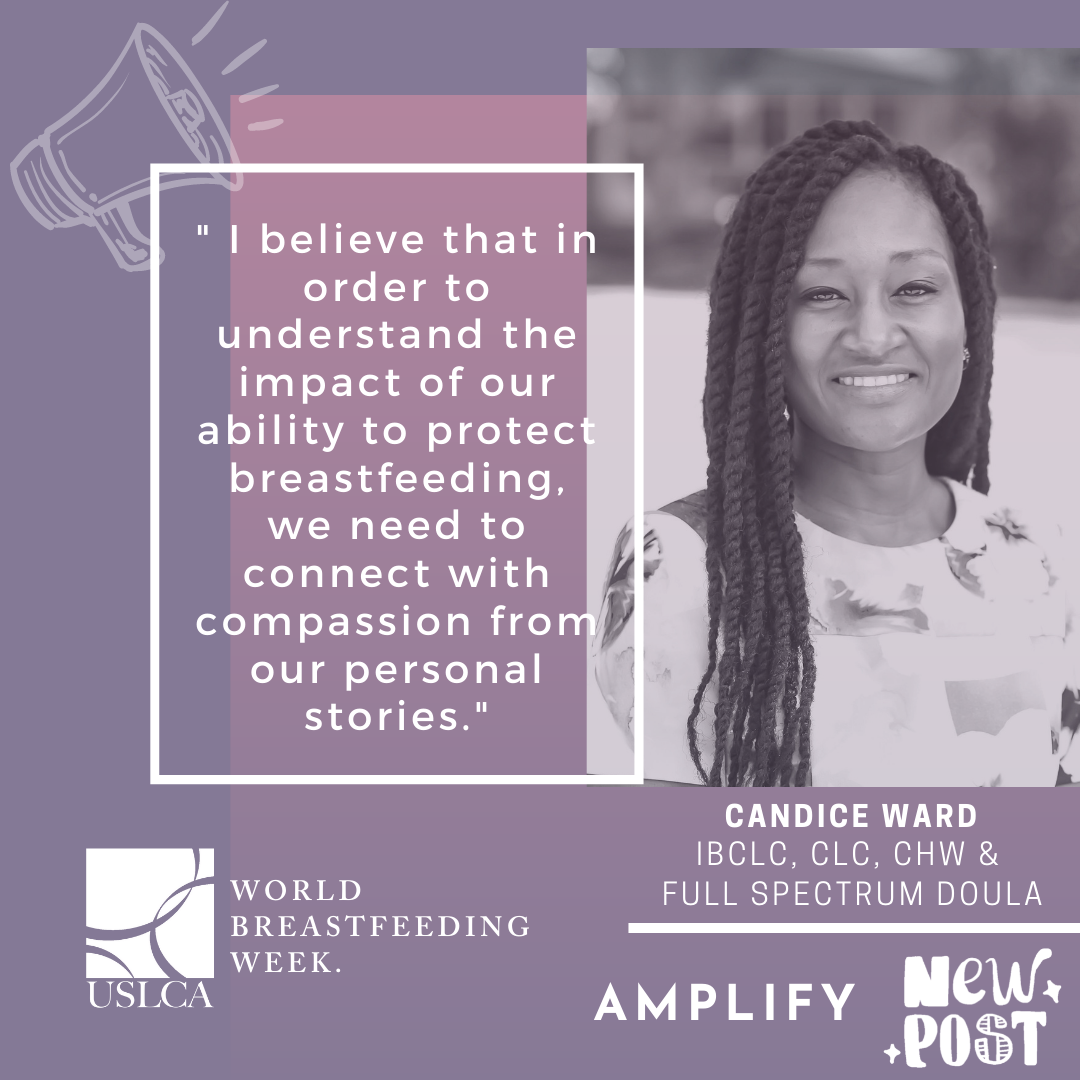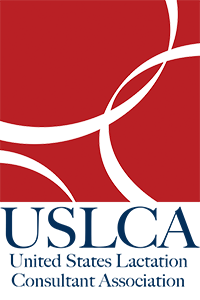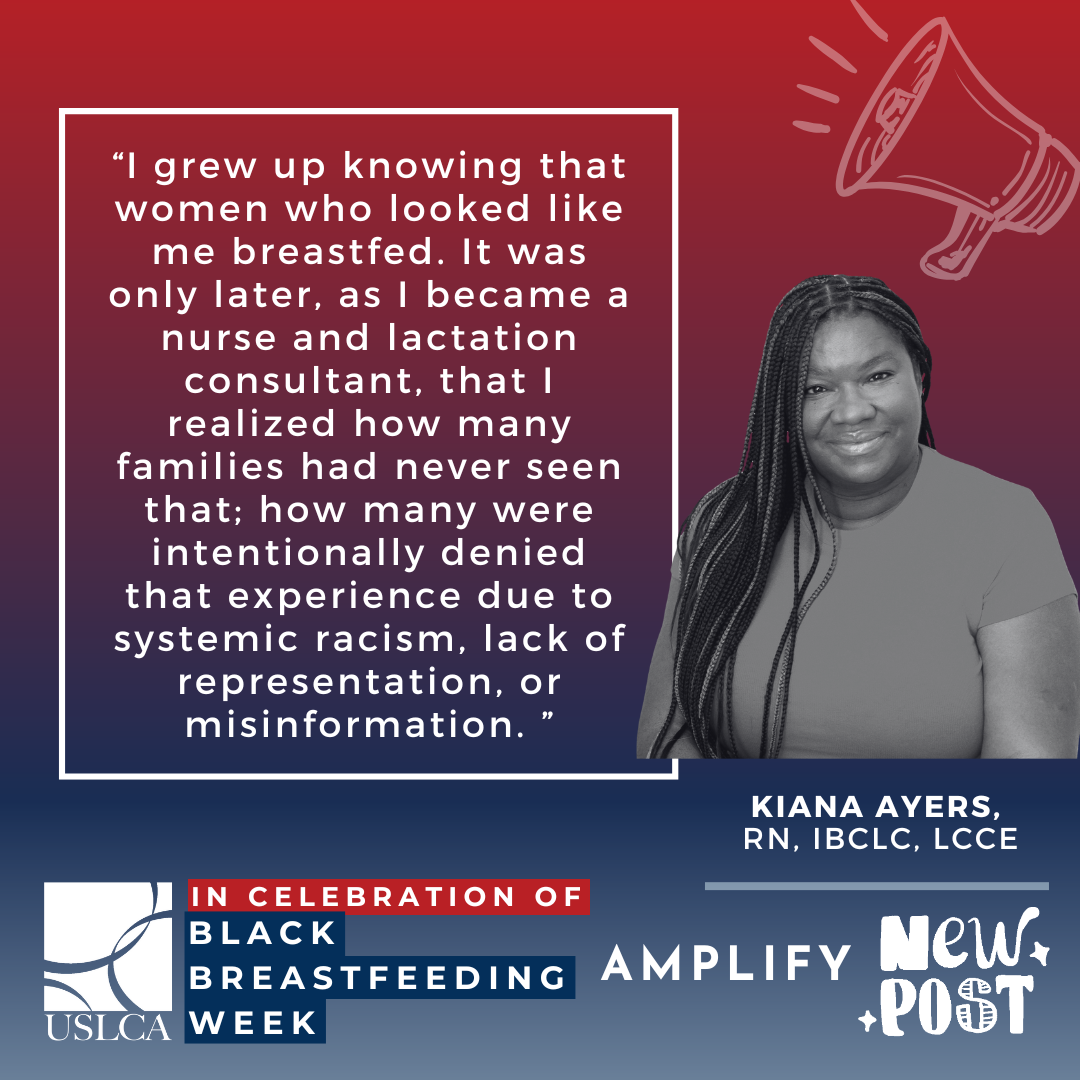Candice Ward, IBCLC, CLC, CHW, Full Spectrum Doula
 Happy World Breastfeeding Week! The 2021 global breastfeeding theme is Protect Breastfeeding: A Shared Responsibility. The timing of this topic is appropriate after the worldwide experience that has reshaped many of our lives, relationships, thoughts, and movements. I believe that in order to understand the impact of our ability to protect breastfeeding, we need to connect with compassion from our personal stories.
Happy World Breastfeeding Week! The 2021 global breastfeeding theme is Protect Breastfeeding: A Shared Responsibility. The timing of this topic is appropriate after the worldwide experience that has reshaped many of our lives, relationships, thoughts, and movements. I believe that in order to understand the impact of our ability to protect breastfeeding, we need to connect with compassion from our personal stories.
One of my earliest memories of breastfeeding came from a woman that I’d sometimes sit next to during Sunday service. I was a teenager then and loved helping with other children. The woman was beautiful with a skin tone similar to mine. She’d often sit quietly on the church pew, nursing her young infant while I kept her toddler entertained. I’d watch in admiration and I often asked questions about her decision to breastfeed. What I gathered was that she knew what was best for her family. Her response to my curiosity prompted me to sit next to her to give my version of “God Don’t Like Ugly” stares directly to onlookers that verbally expressed objections. I suppose this was my first introduction to breastfeeding advocacy and support. Public breastfeeding, in a church no doubt, was considered taboo, but I came away with a viewpoint that later shaped the way I would eventually feed my own children.
Fast forward to present day, I have in my lifetime breastfed six children and assisted countless breastfeeding families as a WIC breastfeeding peer counselor, lactation consultant, and full spectrum doula. I’m sure you are aware of the success of peer-to-peer support and the benefits associated with access to skilled lactation consultants, however, doulas are an invaluable resource for breastfeeding advocacy. While the initial establishment of the lactation relationship often starts when there is a breastfeeding issue or question, prenatal education that includes breastfeeding promotion can impact a person’s decision to breastfeed. Many doulas are in a unique position to support families during and sometime even before pregnancy.
Doulas are non-clinical workers that are professionally trained or certified to provide emotional, physical, educational, and informational support during pregnancy, labor, and the postpartum. Doulas may not necessarily serve families in the same capacity, but they have an important relationship with families, providers, mental health services, community resources, lactation professionals, and communities. Some doulas prefer the term birth worker, labor assistant, labor coach, companion, health champion, or postpartum vitality coach to describe how families are supported.
To elaborate, a full spectrum doula may start with a family at the beginning of resolving fertility issues. The journey could lead to the family expecting their first child, experiencing labor while receiving continuous support, welcoming the baby earthside, and receiving extended care during the postpartum period. The doula has had an opportunity to educate on various topics of pregnancy and childbirth. They might have advocated for the rights of the birthing person and are familiar with the healthcare team. The support will apply and approach may vary within the doula’s specialty or scope, but ultimately, an intimate level of trust flourishes with the presence of a doula. There is increasing evidence that better birth outcomes and decreased mortality/morbidity rates are observed with doula support.
Doulas with the ability to answer common questions about breastfeeding can empower parents as they navigate their infant feeding decisions. Most doula organizations only provide an introduction to basic breastfeeding, still initiation rates improve among families with a knowledge doula. Doulas that have an initiative to gain additional breastfeeding training can assist with basic breastfeeding topics and are skilled to know when to refer to a lactation consultant. The expansion of doula coverage through Medicaid and private insurance will greatly improve family access to doula care. With this shift in care, there is an opportunity for doulas to have a meaningful contribution in promoting, protecting, advocating, and supporting breastfeeding.
Galvanized Actions to Protect Breastfeeding with Doula Support:
- Share your breastfeeding or lactation stories to encourage the normalizing of breastfeeding in the community
- Connect in person or virtually with local doulas and build your referral network
- Create breastfeeding trainings specific to doulas or provide a list of available trainings that equip doulas with adequate skills to support and refer to lactation consultants
- Post hashtags for National Breastfeeding Month, World Breastfeeding Week, Black Breastfeeding Week, Native Breastfeeding Week, Asian American Native Hawaiian and Pacific Islander Breastfeeding Week or breastfeeding content via social media and include doulas in the conversation
Candice’s Lactation Story:
My breastfeeding journey started 21 years ago with my first son. I enjoyed encouraging other young families and answering questions about my experience. Eventually, I was introduced to the WIC program with my second child. I became a CLC and started working with the local agency in 2009. I worked on community breastfeeding initiatives and was given an opportunity to support a local hospital in the process of gaining their Baby Friendly Hospital Designation. My desire to support breastfeeding families continued to increase and I leaped at the opportunity to improve my knowledge by becoming an IBCLC in 2011. I have continued to work in WIC while managing a private practice where I offer full spectrum doula services in addition to lactation care. I’m a member of the Community Health Worker Coalition that is developing solutions and creating positive changes in the quality of life for marginalized populations living in Missouri.
The content of this post does not imply endorsement and may not reflect the position of USLCA.



